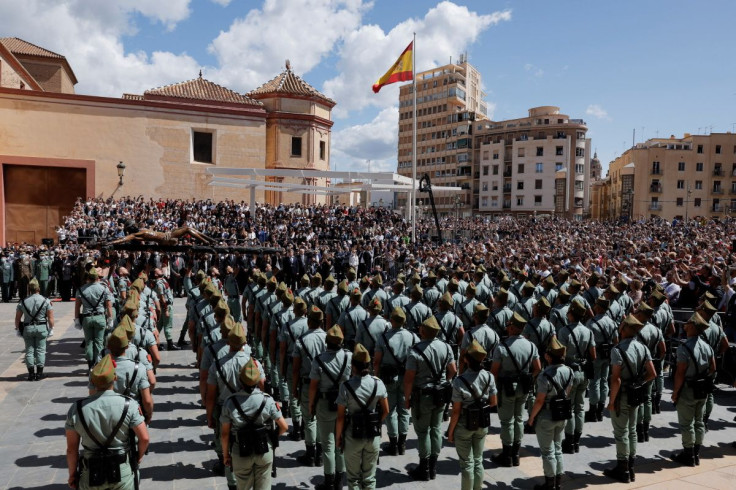Crowds Throng Seville As Curb-free Easter Processions Return To Spain

For the first time since the COVID-19 pandemic began, crowds thronged the streets of Seville as one of Spain's most iconic Easter processions wound its way through the city from midnight free of social distancing curbs.
Known as La Madrug?, or The Dawn, the procession features penitents who wear pointed black hoods and carry a float of the Virgin of Hope of Macarena from the city's cathedral.
"We were waiting for the pandemic issues to be over to come to these types of events. Of course La Macarena is the most marvellous thing there is," Ignacio Suarez, 70, a truck driver, told Reuters close to the cathedral after the procession ended.
Tens of thousands of people usually attend the city's parades, which take place throughout Holy Week and where centuries-old brotherhoods of the faithful carry effigies of Christ or the Virgin Mary laden with candles and flowers.
All of Spain's traditional Easter processions have been cancelled since 2020 due to the pandemic.
The country imposed one of the world's strictest lockdowns at the start of the pandemic but most curbs have been gradually withdrawn after COVID infection levels following a comprehensive vaccination programme.
© Copyright Thomson Reuters 2024. All rights reserved.





















